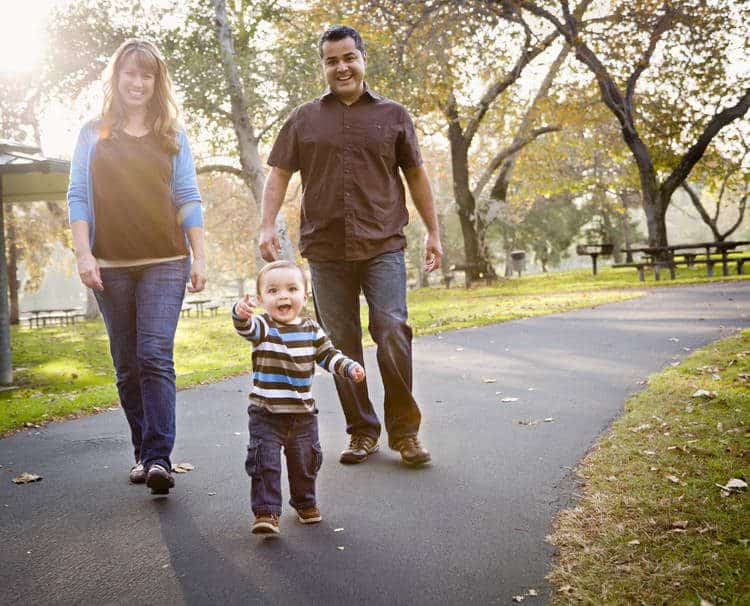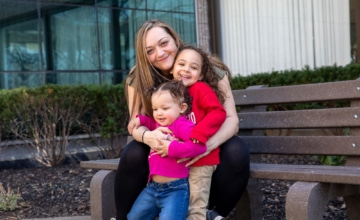Recently Washington has seen two early childhood transitions; these have not involved young children moving from one developmental stage to another, but rather two adults who care deeply about implementing policies to support that positive growth.
Within the past few weeks, the early childhood community has welcomed a more visible focus on early learning within the Department of Education while saying goodbye to a stalwart baby champion at the Department of Health and Human Services (HHS), Dr. Joan Lombardi.
For the past few years, Dr. Lombardi has been the Deputy Assistant Secretary and Inter-Departmental Liaison for Early Childhood Development at HHS. This key post is only one of a long line of positions both in and out of government from which she has provided leadership in the early childhood field in the United States and around the world. Milestones in her career include such accomplishments as founding chair of the Birth to Five Policy Alliance, first Associate Commissioner of the Child Care Bureau, and author or editor of books on child care and Early Head Start. But she has also been a guide for many of us through her efforts to move early childhood policy forward and through her tireless voice emphasizing the need for policies that help build a solid developmental foundation for infants and toddlers. While Dr. Lombardi’s strong advocacy for young children will be missed inside the Administration, children’s advocates can surely look to her for continued leadership in her life outside government.
Dr. Lombardi’s partner in one of her most recent endeavors—building stronger ties between HHS and the Department of Education—has been Dr. Jacqueline Jones, Senior Advisor on Early Learning to Education Secretary Arne Duncan. Last week, Dr. Jones unveiled a proposal to create a more formal focal point for young children through a new Office for Early Learning, which she will head. In a later communication on the proposal, Secretary Duncan stated: “Establishing a dedicated office underscores a critical step in progressing the national dialogue about improving outcomes for young children. It will institutionalize, increase, and coordinate federal support for high-quality early learning, manage outreach to the early learning community and enhance support for building high-performing early education systems in states across the country.”
Duncan placed the creation of this new office within the context of the Obama Administration’s overall goals for education: “Improving early learning programs for children birth through third grade is critical work and plays a fundamental role in building a cradle to college and career education system for our children. Research consistently shows that high-quality early learning programs benefit children, our society, and our national prosperity. It is simply one of the most cost-effective investments America can make in its future.”
He also noted that states have already begun the transformation of early education and cited the joint effort with HHS to create the Race to the Top-Early Learning Challenge as helping support this movement. “An Office of Early Learning will allow our Department to better support their efforts, deepen public awareness of the impact of this work, and leverage early learning investments in ways that raise quality and expand access for more children.” More information about the new office’s role will be forthcoming in the next few weeks.
Of interest to infant-toddler advocates will be the extent to which greater visibility for early learning within an education context will benefit children under age 3. A focus from birth through third grade covers a wide developmental range. The Department of Education historically has had few programs under its purview that address the needs of infants and toddlers, the most notable being Part C/Early Intervention. Recently, the Department has promoted a new focus on early literacy beginning at birth. However, the major funding for supporting early development and learning flows through HHS from such programs as Head Start/Early Head Start, the Child Care Development Fund, and the new Maternal, Infant, and Early Childhood Home Visiting program.
Maintenance of the close relationship with HHS, forged over the last few years in large part because of the dedication of Joan Lombardi and Jacqueline Jones, is critically important to ensuring that babies’ needs are understood and addressed in a developmentally appropriate way. So is helping to promote an understanding of the importance of “baby learning” and how it differs from that of older children. As Dr. Jones transitions to her role in the newly-created Office for Early Learning, we encourage the infant-toddler community to reach out to her and provide input on the needs of young children during a time of life when the foundations of learning are laid.





